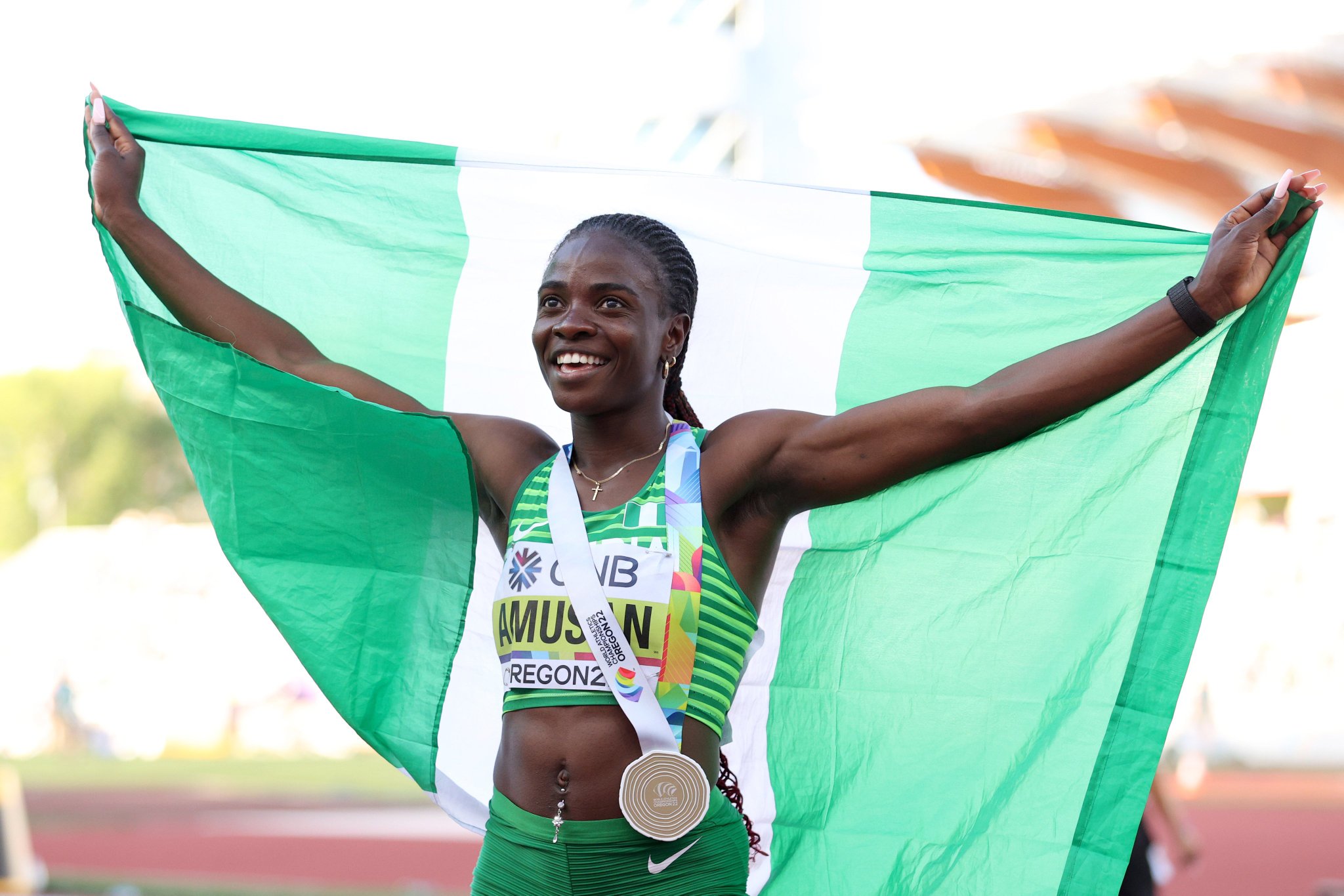
Tobi Amusan Calls Out Nigeria Over Poor Quality Kits Ahead of World Championships

In a video that has set social media ablaze, Tobi Amusan, Nigeria’s world champion in the 100m hurdles, voiced her frustration over the inferior kits provided to the country’s athletes ahead of the World Athletics Championship.
The revelation has sparked yet another storm around Nigeria’s sports administration, where years of mismanagement and poor planning continue to cast a shadow over the brilliance of its athletes.
The footage shows Amusan holding up a branded “HIRACE” kit, visibly unimpressed. For a nation expected to rally behind its global stars with world-class resources, the choice of attire from a company better known for basic fitness equipment than elite performance sportswear felt like an insult. “This is what we’re expected to compete with at the world stage?” her tone seemed to imply—a question that resonated with thousands of Nigerians online, many of whom blasted the authorities for repeated negligence.
This is not the first time Nigeria’s athletes have faced such humiliation. The scars of the Paris 2024 Olympics kit debacle are still fresh, where disputes over official attire left Nigerian representatives scrambling to align with international standards while other nations showcased seamless preparation. Once again, the embarrassment is public, and the athletes—those who have worked tirelessly to carry the nation’s flag—are left to bear the consequences.
For Amusan, who has carried Nigerian athletics on her back with world-beating performances, the frustration is understandable. Her rise to global stardom, breaking records and standing toe-to-toe with the best in the world, has often come in spite of the system rather than because of it. Watching her lament over poorly sourced kits is not just a minor issue of sportswear—it is a symbol of how Nigeria continues to sabotage its own stars.
This problem is deeper than fabrics and logos. It is about the structural rot in sports administration, where millions of naira are budgeted for competitions but execution falls drastically short. Time and again, Nigerian athletes have complained about poor travel arrangements, unpaid allowances, and substandard training facilities. Yet, no lasting reforms ever seem to materialize. Instead, the cycle of neglect continues, eroding morale and leaving even the most patriotic athletes questioning the value of their sacrifices.
Sports historians point out that this recurring embarrassment is not unique to athletics. From football to boxing to basketball, Nigeria has a storied record of producing exceptional talent but pairing it with administrative blunders that derail momentum. For a nation blessed with natural athletic prowess, the inability to match talent with proper support has created a tragic pattern: flashes of glory overshadowed by stories of mismanagement.
What makes this controversy sting more is the global attention now fixed on Amusan. Her every move is watched by fans, scouts, and international sponsors. When she calls out her country’s kits, the world listens—not just as a complaint, but as an indictment of Nigeria’s inability to take care of its own. At a time when athletes from the U.S., Jamaica, and Kenya are being fitted in cutting-edge gear designed for peak performance, Nigeria’s brightest star is forced to showcase a jersey that looks more at home in a local gym than on the track at a World Championship.
The reactions online capture the mood perfectly. Fans are outraged, athletes sympathetic, and critics once again calling for accountability. But as history shows, such outrage often fades without reform. The bigger question remains: will this finally be the wake-up call for Nigeria to take sports administration seriously, or just another chapter in a long list of failures?
For now, Amusan remains focused, as champions do, but the pain in her voice tells the larger story. She deserves better. Nigerian athletes deserve better. And until they get it, the world will keep seeing these avoidable controversies that tarnish the image of a nation bursting with untapped potential.
In the end, one thing is clear—talent may win races, but without proper support, even the fastest legs can be slowed down by the weight of a failing system.
Watch the video below
Video: World champion Tobi Amusan Laments Inferior Kits Provided By Nigeria Ahead Of World Athletics Championship pic.twitter.com/Mo42UdSjvi
— Nigeria Stories (@NigeriaStories) September 12, 2025

